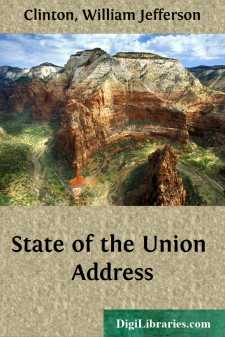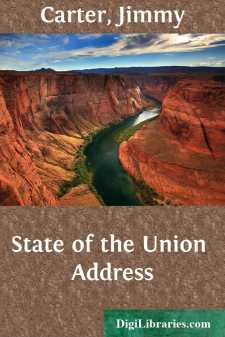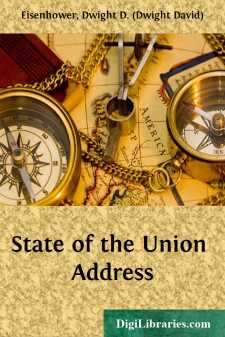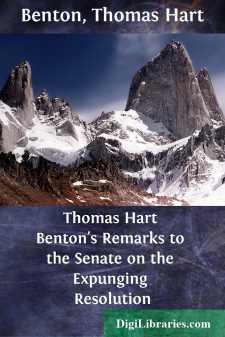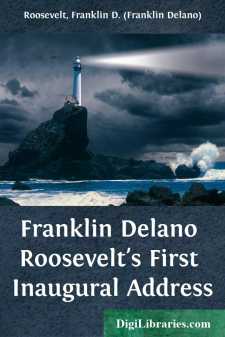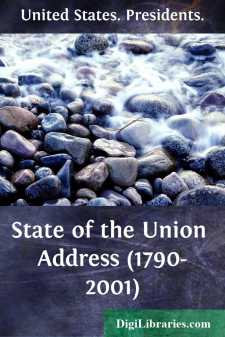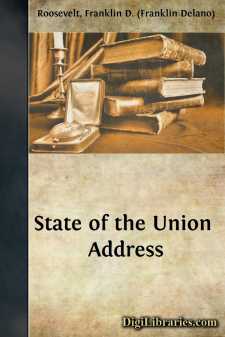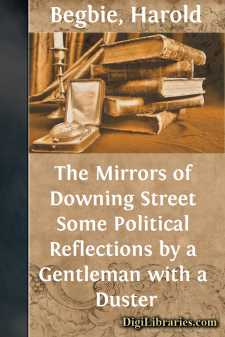Political Science
- Conspiracy & Scandal Investigations 1
- Constitutions 7
- Economic Conditions 10
- General 46
- Government 6
- History & Theory
- Peace 1
History & Theory Books
Sort by:
Mr. Speaker, Mr. President, members of the 103rd Congress, my fellowAmericans: I am not sure what speech is in the TelePrompTer tonight, but I hope we can talk about the State of the Union. I ask you to begin by recalling the memory of the giant who presided over this chamber with such force and grace. Tip O'Neill liked to call himself "A Man of the House" and he surely was that. But even...
more...
by:
Jimmy Carter
Two years ago today we had the first caucus in Iowa, and one year agotomorrow, I walked from here to the White House to take up the duties ofPresident of the United States. I didn't know it then when I walked, butI've been trying to save energy ever since. I return tonight to fulfill one of those duties of the Constitution: to give to the Congress, and to the Nation, information on the state...
more...
Mr. President, Mr. Speaker, Members of the Eighty-third Congress: I welcome the honor of appearing before you to deliver my first message to the Congress. It is manifestly the joint purpose of the congressional leadership and of this administration to justify the summons to governmental responsibility issued last November by the American people. The grand labors of this leadership will involve:...
more...
Mr. President: It is now three years since the resolve was adopted by the Senate, which it is my present motion to expunge from the journal. At the moment that this resolve was adopted, I gave notice of my intention to move to expunge it; and then expressed my confident belief that the motion would eventually prevail. That expression of confidence was not an ebullition of vanity, or a presumptuous...
more...
by:
Anonymous
CHAPTER I. THE ULSTER COVENANT. THE QUESTIONS STATED. IRELAND UNDER THE CELTS AND THE DANES. "Being convinced in our consciences that Home Rule would be disastrous to the material well-being of Ulster as well as of the whole of Ireland, subversive of our civil and religious freedom, destructive of our citizenship and perilous to the unity of the Empire, We, whose names are underwritten, Men of...
more...
President Hoover, Mr. Chief Justice, my friends: This is a day of national consecration, and I am certain that on this day my fellow Americans expect that on my induction into the Presidency I will address them with a candor and a decision which the present situation of our people impels. This is preeminently the time to speak the truth, the whole truth, frankly and boldly. Nor need we shrink from...
more...
Fellow-Citizens of the Senate and House of Representatives: I embrace with great satisfaction the opportunity which now presents itself of congratulating you on the present favorable prospects of our public affairs. The recent accession of the important state of North Carolina to the Constitution of the United States (of which official information has been received), the rising credit and...
more...
Mr. President, Mr. Speaker, Senators and Representatives in Congress: I come before you at the opening of the Regular Session of the 73d Congress, not to make requests for special or detailed items of legislation; I come, rather, to counsel with you, who, like myself, have been selected to carry out a mandate of the whole people, in order that without partisanship you and I may cooperate to continue...
more...
by:
Harold Begbie
INTRODUCTION Let me say that I hope I have not betrayed any confidences in these sketches. Public men must expect criticism, and no criticism is so good for them, and therefore for the State, as criticism of character; but their position is difficult, and they may justly complain when those to whom they have spoken in the candour of private conversation make use of such confidences for a public...
more...
FREEDOM IN SERVICE I [Reprinted, with the addition of References, from the Morning Post of August 20th, 1915.] I. UNIVERSAL OBLIGATION TO SERVE "The military system of the Anglo-Saxons is based upon universal service, under which is to be understood the duty of every freeman to respond in person to the summons to arms, to equip himself at his own expense, and to support himself at his own charge...
more...


